Four academics awarded Institute of Physics medals
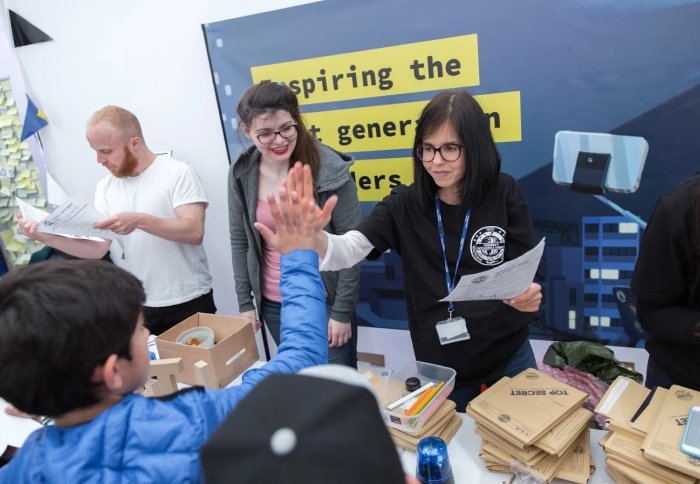
Dr Jess Wade at the Imperial Festival
Experts in space missions, nanophysics, bioinspired materials and physics outreach have all been announced as winners.
Imperial academics have scooped a total of four medals in all three categories of the Institute of Physics (IOP) annual awards.
The IOP has announced Gold Medals for outstanding and sustained contributions, its Silver Subject Medals for distinguished contributions to physics and its Bronze Early Career Medals that recognise and reward exceptional early career contributions.
Professor Michele Dougherty – Gold– Richard Glazebrook Medal and Prize
The IOP recognised Professor Dougherty, the head of the Department of Physics, for ‘her scientific leadership of the Cassini magnetic field instrument at Saturn and the European Space Agency (ESA) JUICE study team, leading to mission selection to explore the environs of Jupiter.’
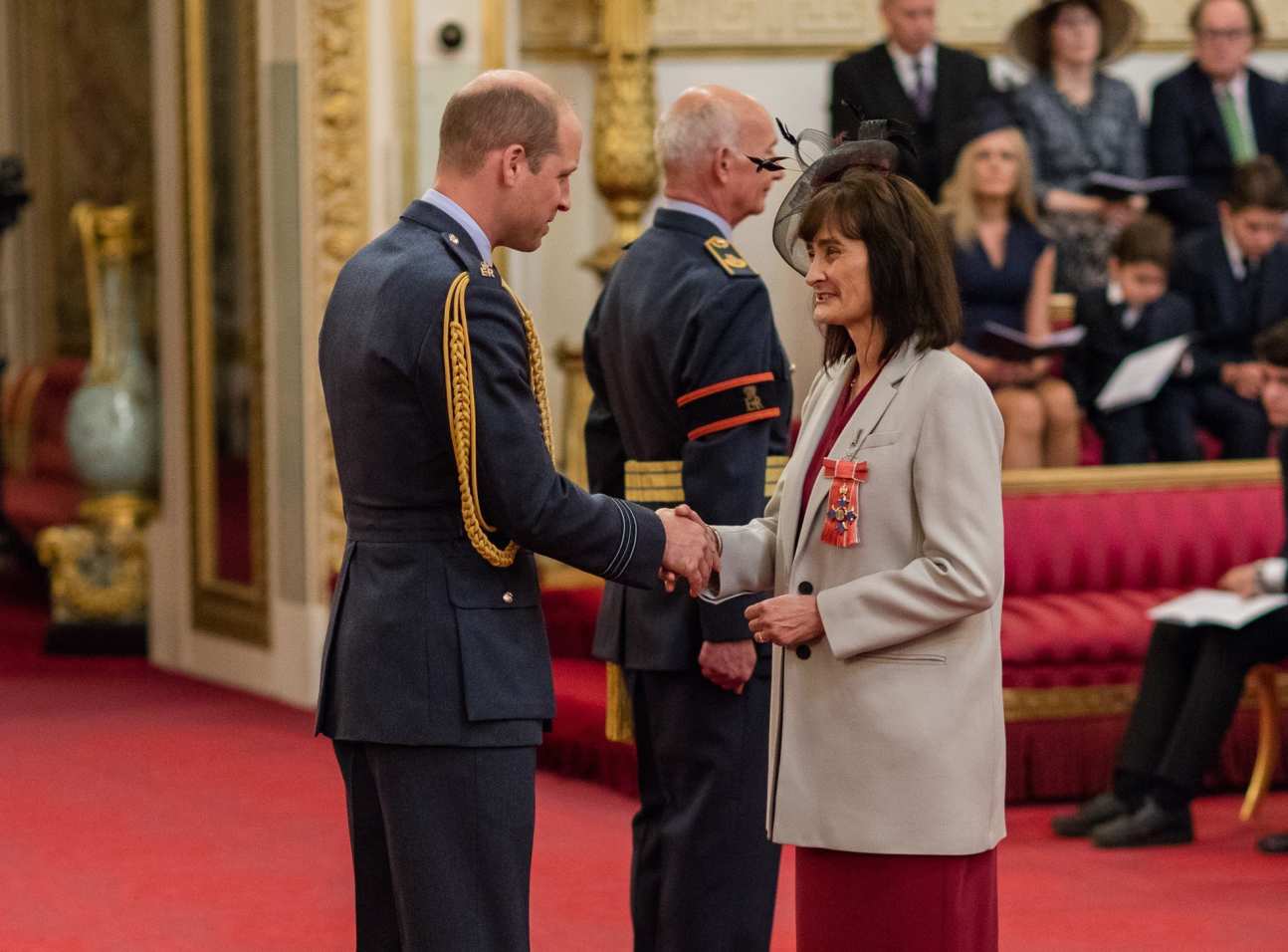 Professor Dougherty was Principal Investigator for the key magnetic field instrument aboard the international NASA-ESA Cassini-Huygens spacecraft orbiting Saturn. She has also has led the international study of the Europa Jupiter System Mission (EJSM) and the European-only mission study of JUICE (JUpiter ICy moon Explorer), due for launch in 2022.
Professor Dougherty was Principal Investigator for the key magnetic field instrument aboard the international NASA-ESA Cassini-Huygens spacecraft orbiting Saturn. She has also has led the international study of the Europa Jupiter System Mission (EJSM) and the European-only mission study of JUICE (JUpiter ICy moon Explorer), due for launch in 2022.
The magnetic field instrument on Cassini was also centre-stage in the mission’s ‘Grand Finale’, a sequence of very close fly-bys culminating in a plunge into the planet. The carefully processed data promises to unravel the enigma of Saturn's planetary magnetic field.
Professor Dougherty was also recently given a CBE for services to UK Physical Sciences. On her new award, Professor Dougherty said: “It is a great privilege to be given this award for essentially doing my job, none of which would have been possible without the great people I have worked with over the years.”
Professor Adrian Sutton – Silver – David Tabor Medal and Prize
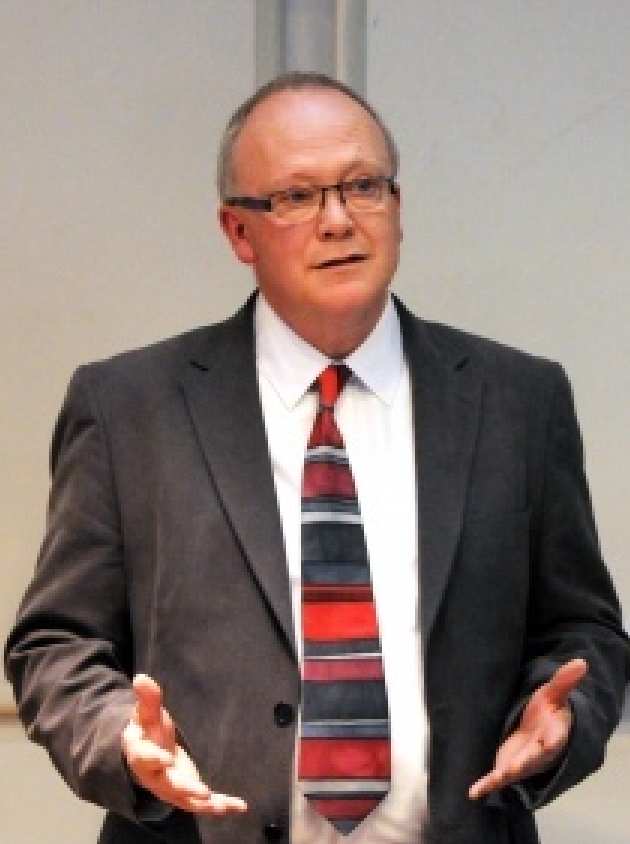 Professor Sutton, from the Department of Physics, applies fundamental physics to understand and predict the structure and properties of materials of technological significance. He is one of the four fellows of the Royal Society who founded the Thomas Young Centre for the theory and simulation of materials, which is made up of around one hundred research groups from Imperial, King's College London, Queen Mary University London and University College London. In 2009 he also became the founding director of the Centre for Doctoral Training on Theory and Simulation of Materials.
Professor Sutton, from the Department of Physics, applies fundamental physics to understand and predict the structure and properties of materials of technological significance. He is one of the four fellows of the Royal Society who founded the Thomas Young Centre for the theory and simulation of materials, which is made up of around one hundred research groups from Imperial, King's College London, Queen Mary University London and University College London. In 2009 he also became the founding director of the Centre for Doctoral Training on Theory and Simulation of Materials.
Professor Sutton, is recognised for ‘his definitive contributions to the nanophysics of interfaces in crystalline materials, atomic and electronic structures of surfaces, dislocations and kinks, current-induced mechanical instabilities in nanowires, and dislocation elastodynamics during shock loading.’
On his award, Professor Sutton said: “I am delighted to receive the Tabor medal and prize from the IOP. David Tabor was a giant in the physics of surfaces and interfaces and it is a great honour for me to receive this award.”
Professor Molly Stevens – Silver – Rosalind Franklin Medal and Prize
Professor Stevens, from the Departments of Materials and Bioengineering, is recognised for ‘her contributions to ground-breaking and influential advances in the engineering of bioinspired materials for regenerative medicine and biosensing applications – and their translation into industrial development and medical deployment.’
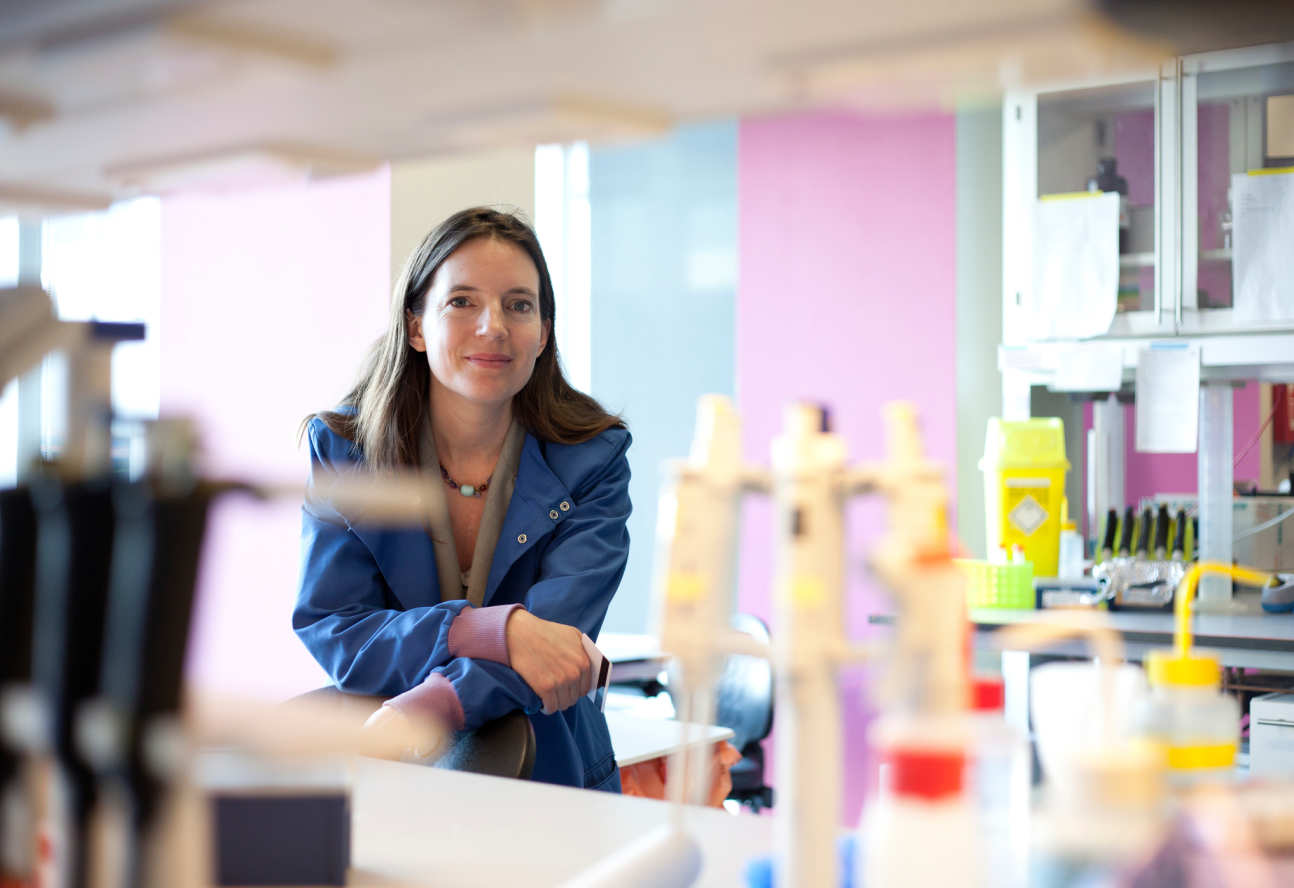 Her diverse research group includes regenerative medicine studies, looking at stem cells, bioactive scaffolds and tissue regeneration. For example her group develops novel approaches to tissue engineering that could produce large quantities of human mature bone for transplantation, as well as other vital organs such as liver and pancreas.
Her diverse research group includes regenerative medicine studies, looking at stem cells, bioactive scaffolds and tissue regeneration. For example her group develops novel approaches to tissue engineering that could produce large quantities of human mature bone for transplantation, as well as other vital organs such as liver and pancreas.
In the field of nanotechnology, her group currently researches biomolecular recognition and self-assembly mechanisms to create new dynamic nanomaterials, biosensors and drug delivery systems.
On her award, Professor Stevens said: “This award recognises the hard work of my fantastic team of postdocs and students and the terrific contributions that they have made to new platforms of designer materials for biomedical applications.”
Dr Jess Wade – Bronze – Daphne Jackson Medal and Prize
Dr Wade, from the Department of Physics, is recognised for: ‘acting as an internationally recognised ambassador for STEM, enhancing engagement across a wide range of demographics, through sustained and stimulating community engagement and outreach.’
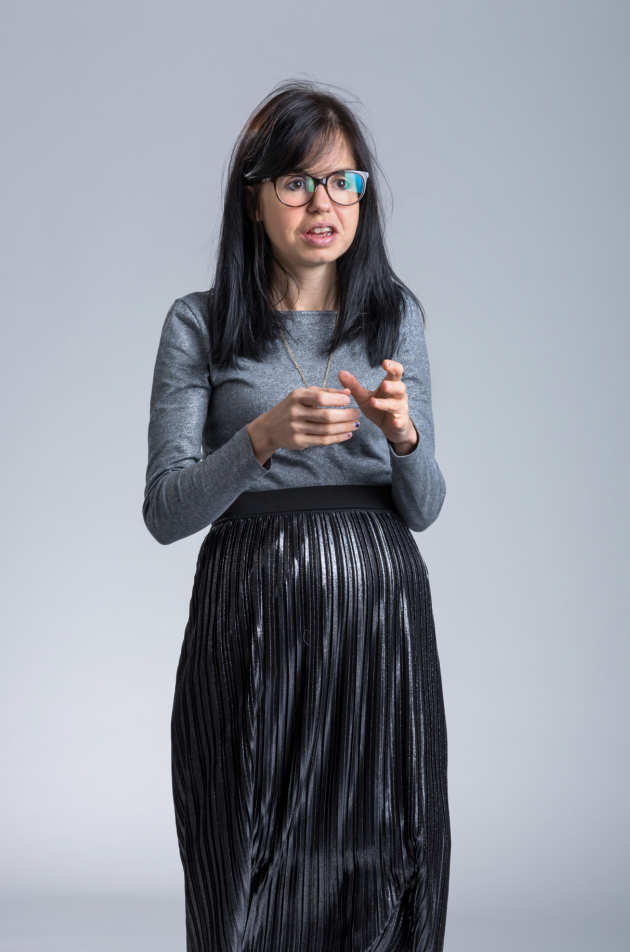 Dr Wade completed her masters and doctorate at Imperial, and now works as a postdoc researcher studying organic light emitting diodes. Alongside this, she is a fierce promoter of physics, particularly to girls, through events and outreach activities at Imperial.
Dr Wade completed her masters and doctorate at Imperial, and now works as a postdoc researcher studying organic light emitting diodes. Alongside this, she is a fierce promoter of physics, particularly to girls, through events and outreach activities at Imperial.
Among her many outreach activities, she has represented the UK on the US State Department International Visitor Leadership Programme ‘Hidden No More’, and worked with teachers across the country through the 'Stimulating Physics Network'.
On her award, Dr Wade said: “This isn’t really a prize for me, but a prize for Imperial - I’ve grown up at Imperial, fallen in love with physics at Imperial and realised the importance of sharing my enthusiasm with others at Imperial.
“I have been privileged to be involved with Imperial’s public engagement activities both on and off campus - the incredible festival, the schools workshops and the awesome work of Priya and the White City team - and can safely say they’ve inspired me to keep speaking about science even when I’m outside the lab.”
Article text (excluding photos or graphics) © Imperial College London.
Photos and graphics subject to third party copyright used with permission or © Imperial College London.
Reporter
Hayley Dunning
Communications Division